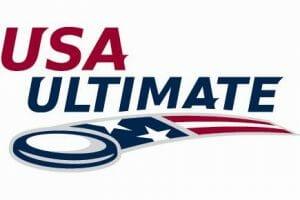December 6, 2012 by Charlie Eisenhood in News with 0 comments
 Next July, the World Flying Disc Federation will host the second-ever Under-23 World Championships in Toronto, Canada. The tournament will match up the world’s best college-age talent
Next July, the World Flying Disc Federation will host the second-ever Under-23 World Championships in Toronto, Canada. The tournament will match up the world’s best college-age talent
In 2010, the winners’ podium was stacked with the usual suspects: Canada, Japan, and Germany took the top three spots in Open; Australia, Japan, and Great Britain led Women’s; and Great Britain, Belgium, and Germany took the Mixed Division. Notice someone missing? You could say Colombia, but they were near the top in both Open and Women’s.
However, this will be the first time the United States will field a team in the U23 competition.
Richard Dana, USA Ultimate’s Manager of Competition and Athlete Programs for the College Division, is leading USAU’s push to field the country’s top talent through an extended tryout and training process.
After the player application period ends tomorrow at Midnight (more on that below), top applicants will be invited to try-out camps to be held in late January or early February. Teams in each division will be selected in late February.
“After the tryouts, players will be heading back to their own college teams and staying in shape and trying to achieve their goals there,” said Dana, explaining that they will keep in touch with their coaches and each other via email, Facebook, and other online media. They likely won’t meet as a group again until July for training camp the week before the tournament.
“The training camp is an intense, week-long experience,” said Dana. “Double practices and being in a training camp environment. It’ll just be the coaches and the players, working to find that chemistry.”
A big question is how many of the younger NexGen Tour players — some of the very best college athletes in the country — will apply, tryout, and make the team. They’re not just well-known; they have the added advantage of having played together all summer.
“I think the value that NexGen presents is that it has given the larger ultimate community an opportunity to see just what kind of top talent in the college division,” said Dana. “The tryouts give a great opportunity to see them in a different situation. They’ll be showcasing their individual talents against other players showcasing their individual talents…Those guys and other guys will have to show what they can bring to a completely new environment.”
“While I think the NexGen guys are definitely in the group of the top talent that will be trying out, being on the tour doesn’t necessarily mean they’ll make the team,” he cautioned.
Dana stressed that the U23 team offers less spotlighted players to have a real chance to shine, and even become stars. There are thousands of smaller college programs that may not be competitive on the national scene but have a handful of truly excellent players.
He trusts the teams’ coaches to look past star power and pick the best players.
“I think all three of the coaches bring a wealth and depth of both talent and experience in the playing realm, the coaching realm, and a ‘growing the team’ realm,” Dana argued.
Bob Krier, the Open Division coach, was a long-time assistant coach at the University of Colorado and now serves as the coach of the top Boulder club team Johnny Bravo. Dana praised Krier’s “beautiful game style approach to ultimate.”
Leading the Women’s Division is Mike Whitaker, a stand-out Stanford player who finished second in the Callahan voting in 2002, his last year with the team. He coached Kali, the UC-Boulder women’s team, for years and has also been involved with Johnny Bravo. “He’s been one of the most successful women’s coaches in the country…,” said Dana. “He’s a very dedicated, focused person who really understands the women’s game.”
Martin Aguilera will lead the Mixed team. A Paideia High graduate, he coached both Georgia Tech’s men’s team and Emory’s women’s team while living in Atlanta. He is now back coaching at Paideia. Dana said his experience teaching both divisions was important for a Mixed coach, and his experience with “one of the most respected coaching trees” at Paideia was a big plus.
The coaches will each be making very difficult decisions after the tryouts to pick their respective teams, and face the challenge of developing a team that will see very little of each other until just a week before the big show. Their first goal is to make sure they get plenty of talent to show up to tryouts.
“The application is open through late tomorrow night,” said Dana. “It should only take about 15 minutes.” He said that the most difficult part is getting a recommendation, but Dana said USAU will accept submissions by email, as long as they come from the recommenders themselves. He also said that an incomplete application is better than no application — gaps can always be filled in.
“This is Team USA, we want the best team possible,” he stressed. “And we can only do that if the best players apply.”